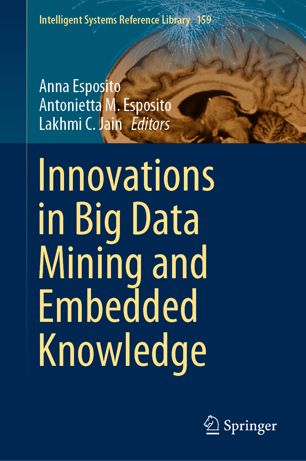

Most ebook files are in PDF format, so you can easily read them using various software such as Foxit Reader or directly on the Google Chrome browser.
Some ebook files are released by publishers in other formats such as .awz, .mobi, .epub, .fb2, etc. You may need to install specific software to read these formats on mobile/PC, such as Calibre.
Please read the tutorial at this link: https://ebookbell.com/faq
We offer FREE conversion to the popular formats you request; however, this may take some time. Therefore, right after payment, please email us, and we will try to provide the service as quickly as possible.
For some exceptional file formats or broken links (if any), please refrain from opening any disputes. Instead, email us first, and we will try to assist within a maximum of 6 hours.
EbookBell Team

4.0
86 reviewsThis book addresses the usefulness of knowledge discovery through data mining. With this aim, contributors from different fields propose concrete problems and applications showing how data mining and discovering embedded knowledge from raw data can be beneficial to social organizations, domestic spheres, and ICT markets.
Data mining or knowledge discovery in databases (KDD) has received increasing interest due to its focus on transforming large amounts of data into novel, valid, useful, and structured knowledge by detecting concealed patterns and relationships.
The concept of knowledge is broad and speculative and has promoted epistemological debates in western philosophies. The intensified interest in knowledge management and data mining stems from the difficulty in identifying computational models able to approximate human behaviors and abilities in resolving organizational, social, and physical problems. Current ICT interfaces are not yet adequately advanced to support and simulate the abilities of physicians, teachers, assistants or housekeepers in domestic spheres. And unlike in industrial contexts where abilities are routinely applied, the domestic world is continuously changing and unpredictable. There are challenging questions in this field: Can knowledge locked in conventions, rules of conduct, common sense, ethics, emotions, laws, cultures, and experiences be mined from data? Is it acceptable for automatic systems displaying emotional behaviors to govern complex interactions based solely on the mining of large volumes of data?
Discussing multidisciplinary themes, the book proposes computational models able to approximate, to a certain degree, human behaviors and abilities in resolving organizational, social, and physical problems.
The innovations presented are of primary importance for:
a. The academic research community
b. The ICT market
c. Ph.D. students and early stage researchers
d. Schools, hospitals, rehabilitation and assisted-living centers
e. Representativ